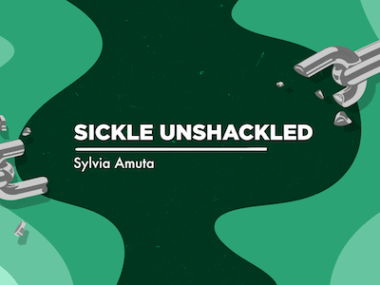Letting go of old patterns as I form new habits with sickle cell
I won't let my disease deter me from trying new activities
Written by |

I wanted to start new habits at the end of last year instead of at the beginning of 2025. Several sources told me I didn’t need to wait until the start of a new year to make changes, so, in typical push-myself fashion, I attended step aerobics classes.
The first session was difficult, but I was glad to be getting some additional cardio. However, after the second session the following week, I felt a familiar sensation in my knees: A sickle cell crisis had started.
During the class, the warning signs were there. However, because it was a group exercise and everyone was pushing each other, I kept going, hoping it was a false alarm. It wasn’t.
Once I returned home, the pain increased and became severe enough that I found myself unable to stand, let alone walk. I wish I could say this didn’t affect me mentally, and that I just focused on recovery and got better. After all, I pride myself on advocating for others and channeling my lived experiences into hope and awareness.
However, suddenly losing my independence and becoming bedridden caused the negative thoughts to creep in, quietly, like shadows slipping under a door. What if this is it? What if my body is finally giving up? I tried to brush them away, but they persisted. What if my future holds only more pain, limitations, and disappointment?
I saw flashes of my younger self running through fields, dreaming of a life unburdened by sickness. Then I saw myself now, trapped in the moment, unable to trust my body to carry me. I began to doubt whether I’d achieve my goals and ever have a day free from the shadow of sickle cell disease.
But a tiny spark of light fought through as the darkness threatened to take over. It started with a simple thought: You’ve been here before and made it through.
I thought back to the many times I’d faced crises like this one — times when the pain felt unbearable and it seemed like my body had betrayed me entirely. And yet, I didn’t just survive; I thrived. I learned how to speak up for myself, educate others about this invisible battle, and become a voice for those who haven’t yet found theirs.
How I’m challenging myself in 2025
This crisis wasn’t the first time I’ve doubted myself, and it likely won’t be the last. But each time, I’ve found a way to rise. Sickle cell has taught me the value of resilience. It’s forced me to see strength in my vulnerability and to appreciate the small victories — standing after days of immobility, laughing with friends despite my fatigue, and holding on to my dreams even when they seem out of reach.
The path forward may look different now. Although group exercise is designed to motivate and encourage, I have more limitations than most. I’ll need to slow down, change the exercise, or make people aware that I’m different and not lazy. But that doesn’t mean I’ve failed or can’t try new things. It just means that I need time to adapt and find ways to make the activity work for me.
As painful as it was, this crisis was a chapter — not the whole story. My knee healed, as will my spirit, because I refuse to let this disease define my limits. Instead of worrying about not keeping up with others, I need to focus on what my body can do.
I must remember to rest when I need to without guilt. Self-care isn’t weakness; it’s survival. I can still challenge myself, even if things go differently than I’d imagined. This year, I want to continue to challenge myself with new habits and activities and not be deterred by living with sickle cell.
Note: Sickle Cell Disease News is strictly a news and information website about the disease. It does not provide medical advice, diagnosis, or treatment. This content is not intended to be a substitute for professional medical advice, diagnosis, or treatment. Always seek the advice of your physician or other qualified health provider with any questions you may have regarding a medical condition. Never disregard professional medical advice or delay in seeking it because of something you have read on this website. The opinions expressed in this column are not those of Sickle Cell Disease News or its parent company, Bionews, and are intended to spark discussion about issues pertaining to sickle cell disease.



Altalida M
Thank you for this article! I too recognize that I am dealing with things differently. I have reduced my back to back workouts to just 30 mins. My pain episodes are even different with different symptoms so I have to limit myself and acknowledge when I am tired or fatigued and have to say no I need to rest. I did go through a mental loop but now realize as I change I have to see things differently and be blessed to still thrive.